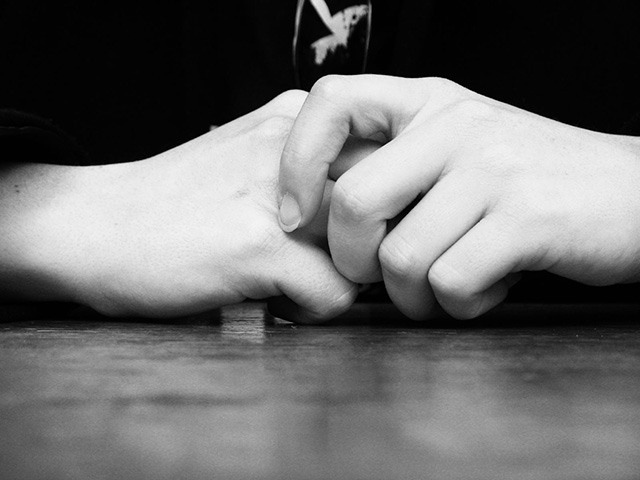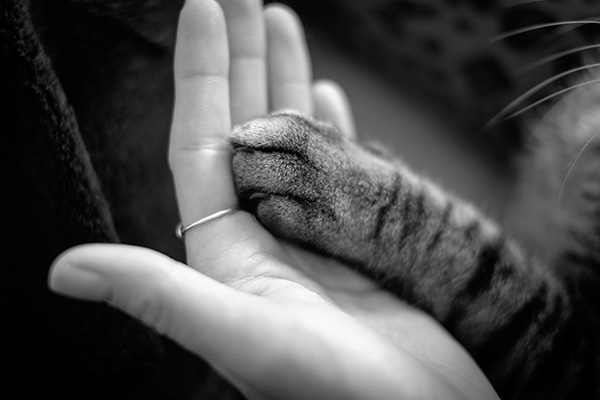Unravelling the mystery of left-handedness
UOM life 13th August 2017
This Left Handers Awareness Day, we decided to set ourselves what we thought was a straightforward task – finding out what causes one in ten of us to favour our left hand for everything from writing to throwing. Turns out, the task wasn’t so easy after all.
There is no one proven reason as to why some of us have a dominant left hand – but that doesn’t make for a fun blog. With that in mind, we’ve shared a few of the theories below.
Genetics
You’re more likely to be left-handed if your parents are – and particularly if you have a left-handed mum. This would suggest that left-handedness is inherited and, therefore, genetic.
Not so fast, though – that would be far too simple. Scientists believe there is no single gene that governs left-handedness. Rather, there may be as many as 40 different genes that dictate which hand you’ll pick up a pen with.
Environment
So, if genetics aren’t completely responsible for handedness, is it the environment? Well, in a way, it could be. There have been studies that conclude the presence of a particular hormone in the womb can affect the brain of the developing foetus, and therefore influence whether it will develop left or right governance.
Other theories suggest that the position of a baby during its final trimester in the womb – when it has very little space to move – can have an impact on handedness, as can its birth position. And there is yet another theory that proposes that ultrasounds lead to more left-handed children because the application can affect the unborn baby’s brain.

Brain structure
Speaking of brains, the structure of the brain may be another factor that determines our left or right-hand bias. Our brains are split into two hemispheres – known as the left- and right-brain – and each is responsible for different functions and processes.
The left-brain is in charge of fine motor functions like speech and writing (which is why it’s seen as the creative side). It also controls the right side of the body. Because of this, it was assumed that this explains why most of us write with our right hands, and that left-handers have a reverse brain structure.
Sure enough, in some people this does appear to be the case. But, crucially, it is not the case for all left-handed people. While fewer left-handed than right-handed people have their language functions stored in their left-brain, the split isn’t one in ten. So, back to the drawing board.
Evolution
Another theory on handedness is that some people develop a right hand bias and others a left in order to successfully divide the work between them. This appears to be evident in the animal kingdom; for example, among communities of chimpanzees, where half the group tend to complete tasks mainly with their right hand and the other half with their left.
In fact, the split between left and right bias is 50:50 in all cases across the natural world. But as we know, this is not the case among humans, where just one in ten of us are left-handed.
This 90:10 split is actually a greater mystery than left-handedness itself. If the evolution of a hand bias was based purely on the division of labour, the split should be closer to half-and-half, as it is in the animal kingdom.
Another theory suggests that left-handers were more likely to be killed in battle and so right-handedness became the dominant trait to counteract this. Back when soldiers wore armour and carried swords and shields, left-handers may have been at a disadvantage wielding their sword in their left hand and protecting themselves by shielding the right side of the body. The heart is on the left, and so would be more exposed.
But we know that the 90:10 split developed long before this; evidence has been found that shows that one in ten Neanderthal were left-handed – and they died out long before humans evolved to Game of Thrones stage. So it seems that right back when humans settled in communities and started using tools, there has been a tendency towards right-hand bias.

History
Studies into the causes of left-handedness are relatively recent; and there’s a good reason. Up until the last century, many cultures associated left-handers with bad luck – or even the devil. In fact, this superstition continues in some cultures and communities to this day.
Because of this, historically many left-handers would be unwilling to admit that they were such, which made studying them fairly impossible.
It might also be the case that they didn’t identify as left-handers. Until just a few decades ago, some left-handed children were either encouraged or forced to switch to writing and eating with their right hand.
Thankfully, this isn’t a common practice today, which means that more research can be done on the causes of left-handedness.
So, what causes left-handedness?
We really wish we had a more straightforward answer for you, but the truth is no one really knows – it’s a mystery.
And it might not even be as straightforward as left and right-handedness. There are those who actually think we are all on a sliding scale of ‘handedness’.
On the other hand (sorry), some researchers think there are simply different degrees of right-handedness – you’re either right-handed or ‘non-right-handed’. You might write with your left hand but throw, hold a spoon and undo a jar with your right hand, for example.
We’re sorry we couldn’t solve this mystery for you today, but we hope you’ll give us a big hand for trying!
Words – Hayley Cox
Images


Anthony Burgess says
I read the article in the Times about your research. As a member of the Club i have always been interested in the differences and difficulties of being not only a southpaw but also a left footer which as a Roman Catholic is a double entendre, When it
was first pointed out to me that i was a left footer i told my accuser that this was not surprising as i was left handed.He explained the meaning of the phrase.
As a keen sportsman i have always been aware of the differences between me and right handers. One fact which i believe to be indisputable is that left handers are much stronger in their right hand/arm than right handers are in their left and i believe i have and anecdote which explains this satisfactorily. good luck in your research.